Addiction, Suicide, & the Voice of God
Chris Grace, Tim Muehlhoff - October 20, 2021
Topic: Addiction, Faith, Loss, Parenting, Relationships
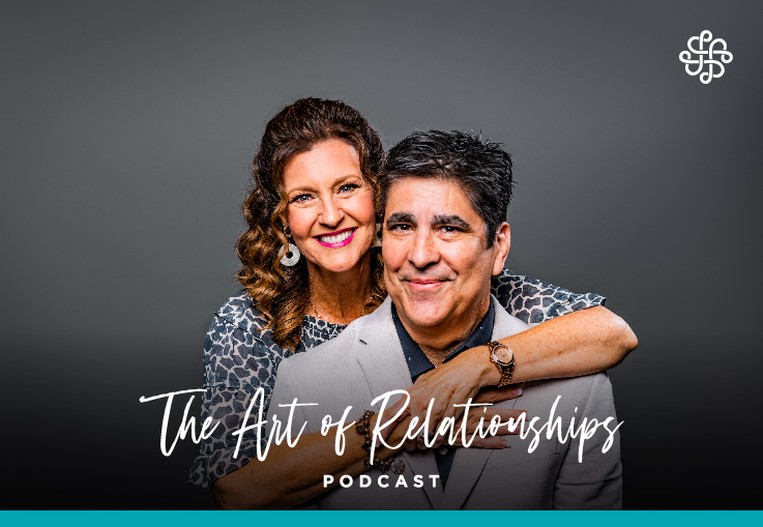
Transcript
Mandy Catto: Welcome, to another Art of Relationships podcast. We're grateful for listeners like you. Let's get right into it.
Chris Grace: Well we're just grateful to be here Tim. Another podcast, and an opportunity to visit with guests and just to talk more about relationships. So today, we have a really fun guest, and why don't you introduce her?
Tim Muehlhoff: Well it's really fun to have your friends on the podcast, and Karrie and I have known each other for almost a year and a half. We were on the teaching team at our church together, that's how we got to know each other. She loves the word of God; she's a very talented speaker, one of our favorites. Noreen and I, We just loved listening to her. But she has an amazing story, so just listen, this is in the back of her workbook that we're going to talk about.
It says, “Karrie Garcia, is a speaker, author, mother of three, wife, and advocate for misfits, who is passionate about proclaiming the freedom that can come from a life surrendered to Christ. After facing drug addiction, the suicide of her mother and the breakdown of her first marriage, she understands the healing that comes only through Jesus Christ. Also, as a life coach and the founder of the freedom movement, a non-profit that provides next steps towards freedom, Karrie is a dedicated to being a guide to help women walk in victory and hope”. Chris, I just wish we could get more exciting guests!
That is such a blah blah blah-
Chris Grace: I know, we hear this every day!
Tim Muehlhoff: Another ... Karrie, thank you so much for being here-
Karrie Garcia: I'm so excited to be here, thanks guys.
Chris Grace: It's good to have you on our campus, and I know you've been here before on campus, cause we always hear from students that talk about, “I loved her! She was an awesome chapel speaker”, so, we're just so glad you're joining us, even for a couple more occasions this week but, today Tim, it's just such a blessing to have someone in here who really speaks to women, but also in general, to an audience that sometimes is very hurt; very troubled. But also looking for hope and I think many things you offer Karrie, is hope, so, I'd love to hear your story, and-
Tim Muehlhoff: Yeah, we'd love to ... So, when the scriptures say, “The comfort that God gives people, we pass onto other people”, so to provide a context for your story, and the hope, and the comfort that you eventually got through a long process, I think it'd be great just to bring people up to speed, on your life journey and pivotal moments.
Karrie Garcia: Right, well, thanks guys, it's super awesome to be here.
I love starting with the scripture in Mark, Chapter 5, where it talks about the man who was caught up with demons and had this really crazy story, and Jesus comes and heals him, and rescues him, and then the man wants to get in the boat with him and go with him and Jesus says, “No, I need you to go back to the village and tell everybody what I've done in your life”. And for me, I just want to be really clear that, although my story is big, and I really relate to the man caught up with so many ailments and hurts, that really, it's Jesus' redemptive story in my life, and that my call, and what I'm passionate about is, to go into the world and really talk to people that feel like they are too far gone, and that somehow God wouldn't travel across the Sea of Galilee to go visit one person. And I'm here to say that he very much would.
So, a little bit of my background. I'm a pastor's kid, grew up in the church, and that comes with all of the stereotypes of being a pastor's kid. For me, on the outside, life looked really good. And my dad, 6'5; big guy, and my mum, tiny and cute and beautiful, and went to church every Sunday; my mum was even on the worship team, she played the egg-shakers, so she was super spiritual.
But on the inside of our home unfortunately, we were plagued with a lot of secrets. My mum struggled severely with an eating disorder from the time she was 13, and mental illness that we just ... at that time, you shouldn't talk about that stuff, you just showed up, you did church. And for me that really caused a disconnect between understanding, "Who is this God, that wants me to perform for him, but doesn't really care about what's going on in our home, or even in the hurts that I am feeling?", and I really didn't know how to put words to that at 13, but I just knew I was angry.
And for me that played out in, "I don't want to feel these feelings, I don't like what's going on; I'd rather just numb what's going on", I know that now. At the time I just thought partying would be fun, but what I've learned over time is that, people that do drugs, don't love themselves; they really hate themselves, and there's real self-hatred that's going on and so, I hated myself, I hated my family, I hated God, and just wanted to numb a lot of those feelings and that plagued itself in my life ... played out for almost a decade of my life, where I started drinking at 13, and jumped really quick to meth by the time I was 14, and was doing meth all the way until I was about 19.
The last time I ever took a line was 27, and so for me, it'll be 20 years sober here in a couple of years; I'm almost there, to my 20 year mark, but I decided, I'm living under a bridge, I'm with my boyfriend, I'm 19 years old; I'm looking at my life going, "What am I doing; this is my life?", and wanted to get out of that, and such a long story and obviously you know there's so many facets to that, but decided to share what was going on with my dad, and he rescued me from that situation.
But the thing is that as we still ... As much as I love my dad, and he would definitely sit here and say there are things that he regrets about that time ... We didn't really deal with why I did drugs in the first place. We just looked at behavior modification as the thing that's going to really help put on that mask, and make everything look okay, but never really deal with why I did drugs in the first place. So instead of dealing with it, I just went straight into ministry, and I thought, "I want to use my story, and I think there's so much truth in that, but if we don't sit and really create the space to learn to process, and walk through why we're doing what we're doing, we're really missing the mark, and we're just going from one addiction to another".
And that's really what ministry became, was this ... addiction per se, to fill the void of what was going on in my life and, I got married shortly after getting clean, and jumped into ministry and then really found out ... about three years in that, this person on the inside of me, was really still hurting, and the person on the outside was not really matching. And it just spiraled out of control, and my marriage fell apart; my life fell apart. I found myself at 27 looking to take my life and sitting at a stop sign, just like, I am finally disqualified. There are some things that happened in my marriage that were just, really markers for me of, "You really have gone too far", so when I fled with the man that's sitting in the cave, almost like he's dead man walking ... I felt like that. I felt like I had gone just so far.
And it was in that moment that God spoke pretty powerfully in my life. It was this very supernatural moment for me, and I turned the car around and that's where I started getting honest about the very fragile places of my heart. That's where I got honest with the hurts that I was having; I got to therapy. I went to therapy twice a week for two years, and just started getting really honest.
So, there is so much to that story, and so much, even with my mum's story, but that's a little snippet of where you kind of find me.
Chris Grace: Karrie, thanks for sharing that, and there's a lot of follow up, and I'm sure the listeners can find themselves at various places here.
One question that I have is, tell me about the stop sign moment, because, often times in psychology, we think this; a person has certain behaviors, characteristics, habits, behaviors that, lead them to a place where, to change, they really have to start making slow, steady progress. And these moments come in and so, one psychologist realized that there were a lot of people that actually had what you had; a transformative moment, that, you're walking one direction, your life is heading this way, and then all of a sudden, something happens.
Have you thought about that moment? What has gone on at that very moment, that was different than anything else. It is clearly associated with the supernatural, right?
Karrie Garcia: Yes.
Chris Grace: God seemed to have done something. And he seems to do these transformative works. Have you thought much about that moment? How do we think about it, capture it, understand it?
Karrie Garcia: I have thought about that, because I have done it in relation to, does he do that with everybody? Did my mum hear the same things I heard-
Chris Grace: Oh wow.
Karrie Garcia: And my mum chose differently, cause my mum chose suicide.
So, what was it like ... I will say a couple of things in that moment. One, whether you believe you hear an audible voice from God or whatever, I do believe that he illuminates scripture in your mind, and what are deep seeds that are planted deep in your heart. I do believe in those moments of chaos, where the enemy has taken you and isolated you, caused doubt for you, and now you're in chaos ... that his illuminated scripture or his voice or however you want to look at it, is implanted so in your heart, that those things come to mind but, I had a choice. And that choice was really like, am I going to believe ... I will say it was transformative in the fact that I turned the car around. I will say that there was a small glimmer of hope, but I will not say that it was in that moment that I was completely released.
It was in that moment that I chose to turn the car around. And because I chose to turn the car around, that confession allowed invitation for God to come in, which then produces intimacy with him, and now he can start to do the reparative work; coupled with me sitting, and pursuing, and offering up these fragile places of wounded-ness, and where I've been provoked my whole life.
There's things that I've had to sit in ... traumas that I've had to sit in and so yeah, in that moment, was very profound and supernatural, and I will say that's happened, maybe five times in my whole life. It's not often, but those were profound moments.
Chris Grace: And in those moments, right then, where I'm almost certain you were like a lot of other people in that moment, where you recognize ... there is going to be a change, it's not going to [inaudible].
Karrie Garcia: Right.
Chris Grace: Things are different now. God has stepped in and done something, right?
So, with listeners out there, who are facing some of these things ... Sometimes, change happens quickly, sometimes it happens more slowly.
Karrie Garcia: Right.
Chris Grace: But, you've identified something I think really important. It still took a lot on your behalf to know that this is God; know that something's about to change, and you still had to make steps to do, or to put into place changes in your life, so-
Karrie Garcia: Absolutely.
Chris Grace: Who helped with that? Where did you turn to at that moment? What was the best thing you did, when you go, “Okay, I'm changing”. What did you next?
Karrie Garcia: I called my dad, and said ... Which I think, we're very much wired for connection neurologically and so, for me, I knew, I am not going to be able to do this on my own.
The enemy does three things. He isolates you, he causes you to doubt, and he produces chaos. So in order to break past that cycle, I had to break the cycle of isolation. And I didn't know that at the time, but picking up the phone and telling somebody, “I'm about to take my life”, was a huge step. And then stepping out and going, when the bible says, "Seek wise counsel", I actually mean he just, seeks, while wise ... just put 'er' on the end, and you'll be fine.
But I got honest. I was like, “I have to start getting honest about this”. It was terrifying. I had no idea what he was gonna ask me to fully give up ... What kind of person was I gonna be without this thing I was so comfortable with. Even though I hated it, and I hated the pain I was feeling, it was still comfortable; it's what I knew. So I got honest, and picked up the phone.
Tim Muehlhoff: How long had it been since you'd talked to your dad?
Karrie Garcia: That time had been about six months.
Tim Muehlhoff: Wow.
Karrie Garcia: And we were very close. But he was the one I knew that even though ... no matter how far I'd gone, when push came to shove, I could pick up the phone and call him.
And some people don't have that. Some people don't have that person, but there are lifelines out there. But if you don't pick up the phone, you drive farther and farther into isolation, and I do want to say too, in that moment, I think it's really important to know this, that you have two voices that are being played. One is filled with ... Cause people often ask, “Well, how do you know which one is God? How do you know which one is trying to help you?”. If it has condemnation, death, and destruction and chaos on it, it is never Jesus. If there is life on it, hope in it, like, “I've seen everything you've done Karrie”, and this is the voice I heard, “I've seen everything you've done. Turn the car around; this is not going to be this way forever”. It was quiet, the other voices were loud.
Chris Grace: I think you are right, I think there's a clarity to it. The opposite is confusion oftentimes, right, this chaos and confusion.
By the way, just one resource for listeners if they're interested. There's an author named William Miller; Bill Miller out of the University of New Mexico, wrote a book called 'Quantum Change', because he said, “What happens is, people like you face moments in life, where all of a sudden they realize they're in the presence of something holy”.
Karrie Garcia: Right.
Chris Grace: They almost always say that. They know it, it's clear. It is not confusing, and they know something's about to change. So this book, Quantum Change, tried to look at people who have gone through these experiences, and figure out, what happened next, how did you know, and what was so self-assuring.
So my dad one day, who had been a smoker for almost 60 years-
Karrie Garcia: Wow.
Chris Grace: He started at the age of 11. He's now 65, or whatever he is, and he decides ... He just woke up one day and he says, “I'm done. No more”. And he didn't smoke again until he died.
But I just wonder sometimes, Karrie, you're starting to help people recognize something about hearing the voice of God, and signs that it is him, right? They want to know, “How do I know?” And you said; it's clear, it is scriptural, it's hopeful ... What else?
Karrie Garcia: I would also say there's not a lot of words in it. Often when we're sitting with the enemy, you're just flooded with so many condemning words, and it's almost a cyclone in your brain, spiraling, spiraling.
And when I see in scripture, and in my own life, which those should always coincide ... It's very clear, it's concise. It's not very long. God's not having a monologue with you. It's like, “Turn the car around, this is not your future. And there is hope”. I heard, “Turn it around, there is hope”.
And I had a small little bit of hope, it wasn't like I had a burning bush in my car. I wish that would've been the story, how fabulous would this podcast be! But, I mean, really in that moment, it was a rescue that I chose to take, and I chose to believe, and I really thought, "Alright, I'll give you a shot", and I did. But it took a lot of work, and that's what I think, people are like, "Just throw your Jesus stuff on me, and make me healed", and it just doesn't work like that, always.
Tim Muehlhoff: Take us back to under the bridge, when you were living with your boyfriend; you're doing meth. Because I think, sometimes we don't have empathy, because it's so easy to judge at that point. Like, come on, how would you not turn the car around much quicker than that? What could possibly be going through your mind ... I think for some of us it's just hard to relate to that so, help us understand what the narrative was. I assume it wasn't all bad, under the bridge, or-
Karrie Garcia: Right. I was delusional. I thought we were just fishing for a month. But then I realized, “I think I live here”.
So I was very disconnected from what was happening. I was still putting makeup on, and going out to work, and-
Tim Muehlhoff: Wait, so you were employed at that time?
Karrie Garcia: Yeah.
Tim Muehlhoff: Oh, wow.
Karrie Garcia: Yeah.
You can do a lot of stuff when you're on meth, Tim! You can get a lot done!
Tim Muehlhoff: Okay!
Karrie Garcia: So, there you go!
Tim Muehlhoff: There you go!
Karrie Garcia: So at that time I was very delusional.
I believe God used my boyfriend at the time, and he sat there ... so funny cause the very thing I wanted to be, was I wanted to fit in. I wanted to be seen, I wanted to be heard, I wanted to be popular. I was dating a guy who was much older than me, and he looked at me, and we were sitting on a hill on this mountain area by the water, under the bridge, and he said, “You look like everyone else; you act like everyone else”. He was like, “You have” ... We were making quite a bit of money, cause I was selling drugs with him at the time, and he said, “But there is just something different about you, and I don't think you should stay here; I think you should go with your dad to San Diego”, which was the place that my dad was gonna go and take a job and, I realized in that moment that I was supposed to drive my dad to the airport.
Why you would have a meth head drive you to the airport, I don't know, but I mean, I kept up appearances pretty well, so my parents didn't even fully know what was going on, even though I'd been doing this for years.
So it was in that moment that I knew what he was talking about. I believe once God owns you, he owns you. And God is going to pursue you no matter what, and God owned me. I was the prodigal son, but he kept coming in. I don't believe that God just leaves you. And he used this guy in my life! And so, I knew what he was talking about; I knew it was Jesus.
So, in that moment, I went and got my dad, and started to get somewhat clean anyway.
Tim Muehlhoff: That's what's encouraging to me ... having three boys, is that God doesn't give up on them. That that voice, even though it's a small voice, is always active, even coming through a meth head boyfriend-
Karrie Garcia: Right.
Tim Muehlhoff: Saying, “You should go this”. That brings me great comfort, that God is unrelenting in his pursuit of us.
Chris Grace: And then, Tim, the whole idea of the character of God that, oftentimes takes my breath away, is when I think of him as the great hound of heaven, which means a hound is turned loose on prey, and never gives up, and it runs and chases and follows, through all things.
The great hound, never gives up. Never gives up on us, and it's just an amazing mental image of the pursuer. I love his idea of he's patient, but I also love that pursuing of us, and he doesn't give up, and he uses all kinds of weird things and people, and places, and whispers still small voices.
It's just amazing-
Karrie Garcia: I love it.
Tim Muehlhoff: Let's stop by your human father for a second.
So when you make this call, what was it that he did ... Cause I'm just thinking of listeners who say, “I have no idea what I would do if I ever get that phone call; right now I'm in this situation where I have a son and a daughter, and I don't know what to do if I ever get this phone call”.
What did he do in that initial response, that it was like, “Okay, this is going to be okay”. How did he welcome you?
Karrie Garcia: Yeah, he actually asked me a pretty profound question, “What do you need?” And I said, “I really need help. I think I need to sift through some of this pain”. And he said, “Okay”. He said, “I'll pay for it”, like I think some of that was helpful too! I think he felt pretty guilty.
But, I remember him asking, “What do you need?”, when I saw my dad at the airport to take him, and we were standing there and I was telling him that I was on drugs and I needed help, and I looked at him; I'd been up for seven days. I took my glasses off, and here's this big daddy, tears just start coming down, cause you don't look right when you've been on drugs for seven days, and I said, “I think I'm gonna die”. And he said, “I'll pick you up, and I'll never let you fall again”.
And I remember him saying those words, and driving away going, I don't think he can fully do that, but I felt too far from God to understand that was God's voice through him saying that. So in that moment, “I'll pick you up, and never let you fall again”, his big daddy hands were around me.
Now here we are, eight years later, and I feel like I'm gonna die again, and I'm calling for him to help. This time, he asked me, “What do you need?”. Instead of him being the rescuer, he asked me, “What do you need?”, and in that moment I was able to say ... I needed to say for myself, “I need to go get help”, and I needed to own that. Rather than being the little girl that curled up in front of my daddy and helping him help me, at this time, I had to take ownership. And so him asking me that, I was able to say, “I need to go see a counselor”.
Tim Muehlhoff: So let me ask, cause I'm sure there's some parents who are saying ... and again, we can't do this in a short podcast ... But Noreen and I saw two movies, heart-breaking movies that just came out in the same year. One is 'Beautiful Boy'-
Karrie Garcia: Yes.
Tim Muehlhoff: Steve Carell ... Did you see it?
Karrie Garcia: I can't do it right now.
Tim Muehlhoff: Oh my word.
And the other one is 'Ben is Back', so very similar. And so I imagine, both of those parents just had to come to a place ... I remember that in Beautiful Boy, which is actually two stories written by the father and the son; both were New York Times bestsellers, written from different perspectives, Beautiful Boy is the father's version. 'Tweak', is the son's version.
But there came a moment where the son called the dad, and said, “I wanna come home”, and the dad said, “You need to be in rehab”, and he said, “Nah, I can't do the rehab, I just wanna come home”, and there was just a heartbreaking scene where Steve Carell says, “You can't”.
Karrie Garcia: Right.
Tim Muehlhoff: So I think as parents ... I can imagine some parents going, “I don't know what to do, is this a time for tough love? Is it a time for open arms? I honestly don't know what to do if I got that phone call”.
Karrie Garcia: Right.
Tim Muehlhoff: So, what would be some things you'd wanna say to a parent whose child calls? When would you tough love, and when would you say, “Yeah, absolutely come home”.
Karrie Garcia: Yeah, I think, though love is so hard for me. I love radical grace, and radical responsibility.
So when do I step in to allowing them to take radical responsibility, and when do I step in to radical grace ... And I think there has to be both for healing. If they're an adult child, then they have to start being an adult. And so much of why this is hard to hear, is that we've created some of what's happening here, and so for us, we have to take some responsibility of like, “I have to end this cycle, and by ending this cycle, I have to stop enabling this and this behavior, because I love you”.
So that makes for, radical responsibility on the part of the parent, but man, the radical grace says, “No matter what this ever ends up looking like, I will always love you, and I will always be here for you, but I cannot support your behavior”. I think that's where we can step into those two things, and the person can be freed up, to get the help. So they won't get the help if you keep bringing them in, “Why would I get help, if I got a house, and money, and food, and ... I'm not gonna get help”, and so, the hardest thing is to go, “I have to be radically responsible, with my words and my actions, because I need to end this cycle that I have probably helped create”.
Tim Muehlhoff: Yeah. I finally had to say to Chris; Chris I cannot keep carrying this podcast. I'm enabling you, and you're gonna have to stand on your own two [crosstalk].
Hey, so we work with undergrads, right? So go back for a second ... I found this very interesting, this we're enabling stuff. You're a culture watcher; what are you seeing with this enabling ... I'm sure with parents with the greatest of intentions, but what's happening that you're seeing this unhealthy enabling?
Karrie Garcia: There's a devoid of truth, so everything is your truth. Your truth is your truth, my truth is my truth, and that's not true. Then it just becomes relativism, and it's really not going to heal you.
There is a truth. There is a truth that is dictated by, in my opinion, by the word of God, and that is where we hold our decisions in our life so, he's gonna ask you to let go of some things that feel really comfortable, so that you can walk in more freedom. I believe God came for those two reasons; freedom and intimacy with you, and he is going to ask you to let go of some things because you're not free, and I am seeing culturally that, “I don't want to let go of anything, but I want all the good Jesus, I want all the beautiful Jesus, I want all the fun Jesus, I want all the pretty Jesus”, but we won't take radical responsibility for surrender and humility.
But God says, “I resist the proud, and give grace”, which is access to the power of God, “That's who I give when you're humble”. And humble is honesty and surrender, and so that is not culturally popular.
Tim Muehlhoff: That is not the Jesus that's popular.
It is amazing to read the new testament and read the gospels, particularly when you see Jesus' sales pitch ... It's a horrible sales pitch!
Karrie Garcia: Right!
Tim Muehlhoff: It's like, “Hey, go leave everything ... Tommy, you're gonna be hated” [crosstalk]. “You're gonna be hated, you're gonna be” [crosstalk]. Oh my word! And you're like, “really?”, and he's like, “I wanna be upfront with you in the beginning of it”, and I think, Karrie, we have developed Christians today who ... you're right, want all the good of the gospel, and who wouldn't want that, right?
Karrie Garcia: And there is so much good.
Tim Muehlhoff: And there is so much good.
So they want Jesus as savior, but the lord thing, “I don't want”.
Karrie Garcia: No, “I don't want lord over my life”.
Tim Muehlhoff: I don't see that kind of separation from Jesus in the gospel, that you can have him as savior, but not lord.
Karrie Garcia: And why would you not want him to be a lord? When you are lord over your life, you are subject to the grid of trauma and pain that you make decisions through, and it brings nothing but destruction. Our gifts in the hands of our pain, bring destruction. Our gifts in the hands of God, brings freedom, both for you and for the world around you.
God is beautiful, and so wonderful to be served; I'm so thankful, that he caused me to be humbled through some of my behaviors, that in turn, created such exultation in my spirit, because of the humbling that I allowed to happen.
This is the beautiful story of Jesus. Not the condemning story.
Chris Grace: Karrie, it's a great way to end it, it's ending on hope.
What is the hope for the person out there, right now, that is at that point, where they're recognizing the difference, “Radical responsibility, radical grace, I get it ... but I don't know how to make that step”. What's a word, that you would give, of hope for this person? What can they do to step into this and say, “It's going to be different”.
Karrie Garcia: I believe that, the safest place you'll ever be, is the moment that you allow yourself to get honest, and honest with another human being-
Chris Grace: I think that's amazing-
Karrie Garcia: Without that, we can't really get anywhere. It's a blocker to intimacy and freedom, is our lack of honesty.
Chris Grace: It's so easy to delude ourselves; to fake, to not listen and to just hide. And then to lose honesty is really probably something that prevents any healing from happening-
Karrie Garcia: Right.
Chris Grace: That's a good word.
Karrie Garcia: Thank you.
Tim Muehlhoff: There's a theologian named Frederick Buechner, who says, “We often have highly edited lives ... We just edit!”, Right? “We're not fully transparent”, he says, but do you have anybody that you can give the unedited version to ... That's an interesting question, and I love what you're saying.
Karrie Garcia: Yeah, thanks guys.
Chris Grace: Tim, I want to extend to you radical grace, because I thought you did just an amazing job [inaudible].
Tim Muehlhoff: Thank you Chris, and I've seen improvement!
Chris Grace: Thank you, I'm-
Tim Muehlhoff: You only fell off your chair once! You are coming a long way. Way to go!
Hey, Karrie, I hope you stick around-
Karrie Garcia: I would love to.
Tim Muehlhoff: And maybe we could do another podcast.
Mandy Catto: Thanks for listening to the Art of Relationships. This podcast is only made possible through generous donations from listeners just like you. If you like it, and want to help keep the podcast going, visit our website, at CMR.biola.edu, and make a donation today.
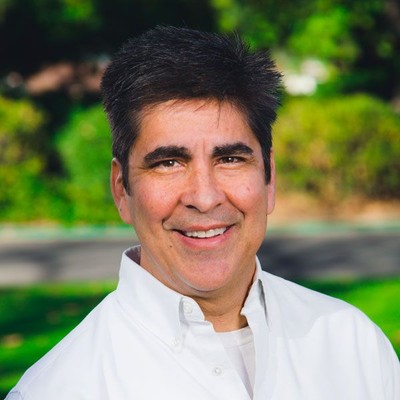
Chris Grace
Christopher Grace serves as the director of the Biola University Center for Marriage and Relationships and teaches psychology at Rosemead School of Psychology. He and his wife, Alisa, speak regularly to married couples, churches, singles and college students on the topic of relationships, dating and marriage. Grace earned his M.S. and Ph.D. in experimental social psychology from Colorado State University.
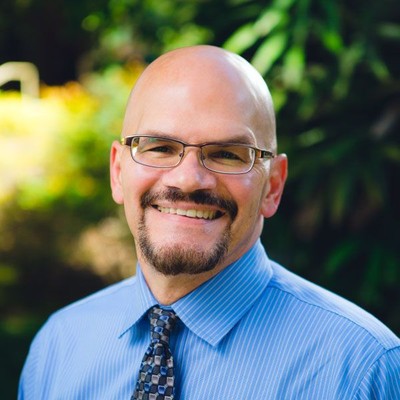
Tim Muehlhoff
Tim is a professor of communication at Biola University in La Mirada, CA, and is the co-director of the Winsome Conviction Project which seeks to reintroduce humility, civility, and compassion back into our public disagreements. He is the co-host of the Winsome Conviction Podcast and his latest book is, Winsome Conviction: Disagreeing without Dividing the Church (IVP)

 Raising a Family in a Fishbowl
Raising a Family in a Fishbowl
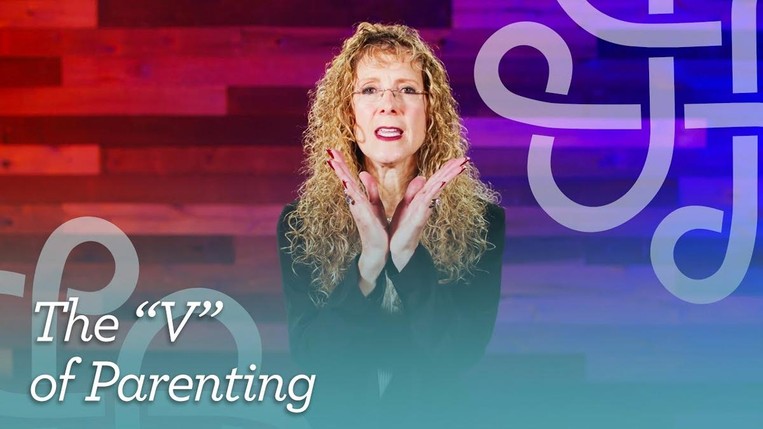 The V of Parenting
The V of Parenting
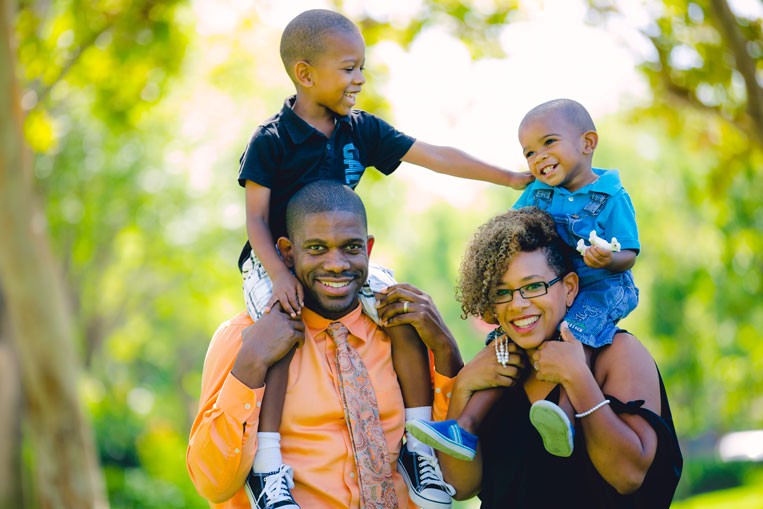 25 Ways to Make Your Parent's Day
25 Ways to Make Your Parent's Day
 "I Just Won't Tell Them": Keeping Secrets In A Relationship
"I Just Won't Tell Them": Keeping Secrets In A Relationship